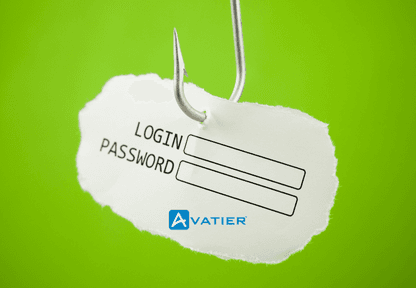August 13, 2025 • Mary Marshall
The Ethical Debate Around Regulatory Compliance in Digital Identity: Balancing Security, Privacy, and Innovation
Explore identity management compliance ethics—GDPR to zero-trust—and how Avatier balances security and user privacy.

Managing identity has become increasingly complex, with organizations navigating a labyrinth of regulatory requirements while trying to maintain security, respect privacy, and foster innovation. The ethical implications of how businesses implement compliance measures in their identity management systems have far-reaching consequences that affect everything from user experience to fundamental rights.
The Regulatory Landscape: A Balancing Act
The digital identity compliance ecosystem has evolved dramatically in recent years. According to Okta’s 2023 Businesses at Work report, companies deploy an average of 89 different applications, a 24% increase since 2019, creating a complex web of identity challenges that must comply with regional and industry-specific regulations. This complexity requires sophisticated governance solutions that go beyond mere checkbox compliance.
Organizations must navigate regulations like GDPR, HIPAA, CCPA, and industry-specific frameworks like NERC CIP compliance for energy companies, FISMA for federal agencies, and FERPA for educational institutions. Each framework presents unique ethical challenges in how organizations collect, store, process, and protect identity information.
Core Ethical Tensions in Identity Compliance
Privacy vs. Security: The Perpetual Tug-of-War
Perhaps the most fundamental ethical tension in identity management is balancing robust security protocols with respect for privacy. Organizations often struggle with questions like:
- How much user data is appropriate to collect for security verification?
- When does multi-factor authentication cross from security measure to privacy intrusion?
- How can enterprises maintain secure systems while respecting user autonomy?
A SailPoint survey found that 67% of security leaders report facing ethical dilemmas between security requirements and privacy principles in their identity programs. This tension has become more pronounced with the rise of biometric authentication and behavioral analytics, which offer enhanced security but raise profound privacy concerns.
Access vs. Protection: The Principle of Least Privilege
Another critical ethical tension revolves around access management. The principle of least privilege suggests users should have only the minimum access necessary to perform their functions. However, implementing this principle raises several ethical considerations:
- How do organizations balance operational efficiency with stringent access controls?
- When does access restriction impede innovation and collaboration?
- How can organizations ensure equitable access policies across different employee groups?
These questions become particularly relevant in healthcare settings where HIPAA compliance must be balanced with the life-or-death need for immediate information access in critical situations.
Transparency vs. Complexity: Making Compliance Understandable
Organizations face an ethical obligation to communicate clearly with users about how their identity data is used, stored, and protected. Yet the technical and legal complexities of compliance often result in impenetrable privacy policies and terms of service. According to a Ping Identity survey, 72% of consumers find privacy policies confusing, leading to uninformed consent—a significant ethical concern.
Emerging Ethical Challenges in the Digital Identity Ecosystem
AI and Algorithmic Decision-Making in Identity Management
As artificial intelligence increasingly powers identity verification and access decisions, new ethical questions emerge:
- How can organizations ensure AI-driven identity systems don’t perpetuate bias?
- What level of human oversight is ethically required for algorithmic access decisions?
- How transparent should organizations be about AI’s role in identity management?
These questions gain urgency as machine learning becomes more embedded in identity lifecycle management systems, making decisions about authentication, authorization, and risk assessment.
Decentralized Identity and Self-Sovereign Identity Models
The rise of decentralized identity frameworks presents a paradigm shift in how we conceptualize identity compliance. Self-sovereign identity models, which give individuals control over their digital identities, raise important ethical questions:
- How do compliance requirements translate when users control their own identity data?
- What responsibilities do organizations retain when identity verification is decentralized?
- How can regulatory frameworks adapt to these emerging models while maintaining security standards?
Cross-Border Data Flows and Jurisdictional Conflicts
In our globalized economy, digital identities frequently cross borders, creating complex ethical and compliance challenges:
- How do organizations ethically navigate conflicting international regulations?
- What obligations do companies have when operating in regions with lower privacy standards?
- How should organizations respond when facing governmental requests for identity data that may violate users’ rights?
Implementing Ethical Compliance: Beyond Checking Boxes
Zero-Trust Architecture: An Ethical Framework
Zero-trust security has emerged not just as a technical approach but as an ethical framework that respects both security and privacy principles. By verifying every access request regardless of source and applying least-privilege access, zero-trust models create systems that are both more secure and more respectful of privacy boundaries.
Implementation of zero-trust principles through multifactor authentication systems has become a cornerstone of ethical identity management, with 85% of security professionals viewing MFA as an ethical imperative according to a recent industry survey.
Compliance by Design: Building Ethics into Systems
Rather than treating compliance as an afterthought, forward-thinking organizations are embracing “compliance by design” methodologies that integrate ethical considerations throughout the identity management lifecycle. This approach means:
- Considering privacy implications during system design phases
- Building consent mechanisms that are meaningful rather than perfunctory
- Creating audit trails that validate compliance while respecting privacy
- Implementing access governance as a continuous process rather than periodic review
User Empowerment: Giving Control Back to Individuals
The most ethically sound compliance approaches recognize that digital identity fundamentally belongs to the individual. This means creating systems that:
- Provide users with meaningful visibility into how their identity data is used
- Offer simple mechanisms for reviewing and modifying consent
- Allow individuals to easily exercise their rights under relevant regulations
- Balance security requirements with user experience considerations
Industry-Specific Ethical Considerations
Healthcare: Life-Critical Identity Management
In healthcare environments, identity management directly impacts patient safety and care quality. HIPAA-compliant identity systems must balance strict privacy protections with clinical workflows where immediate access might be life-critical. The ethical stakes are extraordinarily high, requiring solutions that maintain compliance without compromising care.
Financial Services: Trust and Identity Verification
Financial institutions face unique ethical challenges around identity verification and KYC (Know Your Customer) requirements. These organizations must navigate anti-money laundering compliance while ensuring financial inclusion and avoiding discriminatory practices in identity verification processes.
Education: Protecting Vulnerable Users
Educational institutions managing student identities face special ethical responsibilities due to their work with minors and young adults. FERPA regulations require careful balancing of parental rights, student privacy, and educational needs in identity systems.
The Role of Leadership in Ethical Compliance
CISOs and the Ethical Dimension
Chief Information Security Officers are increasingly recognizing that their role extends beyond technical security to include ethical stewardship of identity systems. This expanded mandate requires:
- Developing ethical frameworks for identity management decisions
- Creating governance structures that consider both compliance requirements and ethical implications
- Educating boards and executive leadership about ethical dimensions of identity compliance
Board Oversight and Ethical Governance
As digital identity becomes central to organizational risk profiles, boards are taking a more active role in overseeing the ethical dimensions of identity management. This requires developing appropriate governance structures to ensure compliance approaches align with organizational values and ethical commitments.
The Future of Ethical Compliance in Digital Identity
As we look toward the future, several trends suggest how the ethical dimensions of identity compliance will evolve:
Proactive Ethics vs. Reactive Compliance
The most forward-thinking organizations are moving beyond reactive compliance to proactive ethical frameworks. Rather than asking “what must we do to comply?” they’re asking “what should we do to respect user identity rights?” This shift represents a fundamental evolution in how organizations approach digital identity management.
Human-Centered Design in Compliance Systems
As compliance requirements grow more complex, the need for human-centered design in identity systems becomes more critical. Future systems will need to balance rigorous compliance with intuitive user experiences that don’t overwhelm individuals with technical or legal complexity.
Transparency as Competitive Advantage
Organizations that embrace transparency about their identity management practices—going beyond regulatory requirements to clearly explain how and why they collect and use identity data—will increasingly find this transparency becomes a competitive advantage in building user trust.
Conclusion: Moving Beyond Compliance to Ethical Identity Stewardship
The ethical challenges of regulatory compliance in digital identity require moving beyond checkbox approaches to embrace a more nuanced role as stewards of digital identity. This means developing comprehensive compliance management frameworks that balance security imperatives, privacy rights, and user experience.
For organizations seeking to navigate these complex ethical waters, solutions like Avatier’s Identity Anywhere platform provide the sophistication and flexibility needed to implement compliance measures that respect ethical principles while meeting regulatory requirements. By approaching compliance not merely as a legal obligation but as an ethical imperative, organizations can build identity systems that earn user trust while effectively managing risk.
The future of ethical compliance in digital identity will belong to organizations that see beyond regulations to the fundamental human rights and values that those regulations were designed to protect—creating identity systems that are secure, compliant, and deeply respectful of individual dignity and autonomy.









